content body
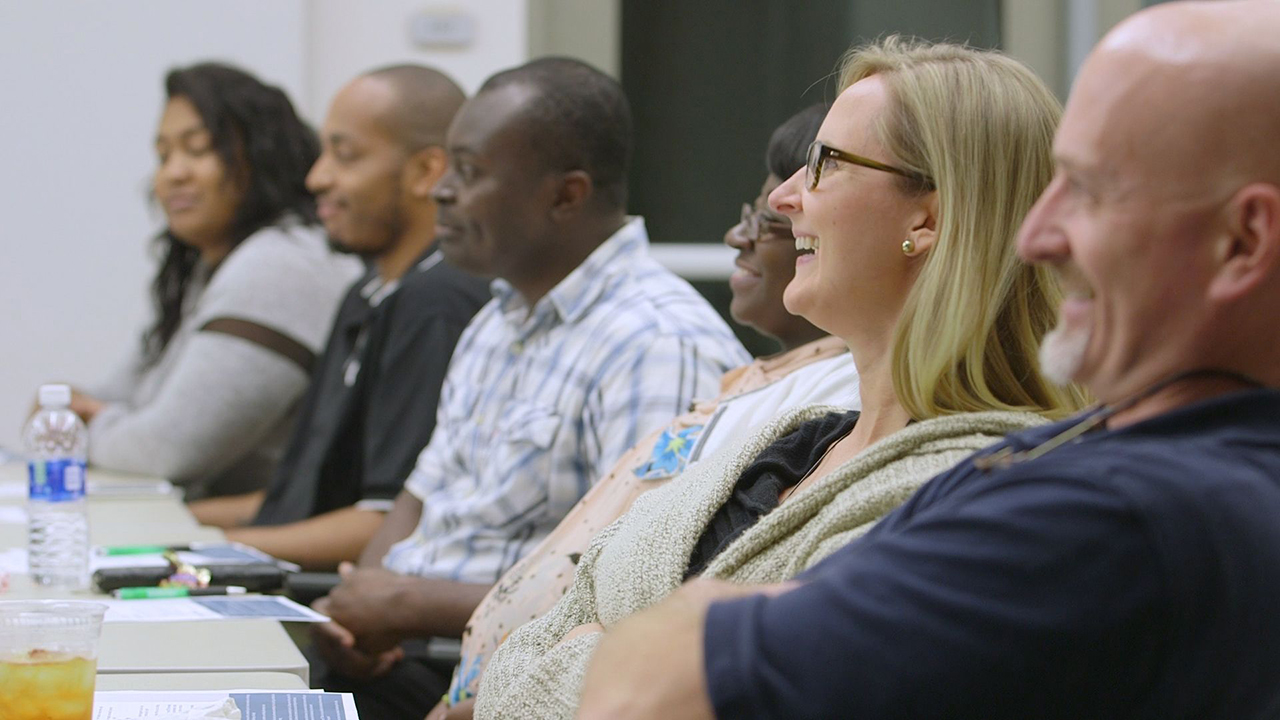
Couples laugh during a class administered by the Alabama Healthy Marriage and Relationship Education Initiative.
Flowers and candy go a long way toward increasing affection this time of year, but building a healthy relationship requires a skill set that combines mindfulness, self-care and communication.
Professor Francesca Adler-Baeder in Auburn University’s College of Human Sciences knows healthy relationships. As principal investigator and project director for Alabama Healthy Marriage and Relationship Education Initiative (AHMREI) since 2001, she and her team along with community agency partners have conducted applied research across the state to prove that healthy relationships impact not just couples, but their families, work environments and the well-being of their communities. Now, the collection of studies, primarily funded by the U.S. Department of Health and Human Services’ Office of Family Assistance, is primed to offer its service outreach model that teaches mindfulness and skills for healthy relationships for replication across the country as well.
“Unhealthy relationships affect all areas of your life and can make you sick,” Adler-Baeder said. “The spillover effects of unhealthy relationships onto parent-child relationships, sleep patterns, productivity in the workplace has real impact on physical and mental health. AHMREI is a community agency partnership that takes the science of healthy relationship processes, functioning knowledge and skills, and provides community classes that teach couples in a facilitated format how to create a healthy relationship.”
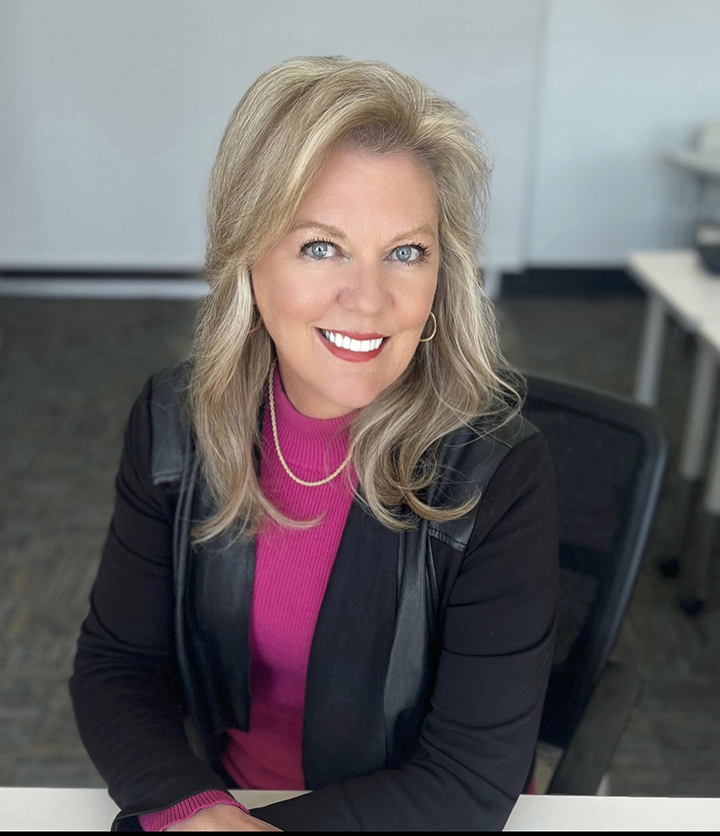
Francesca Adler-Baeder
The need in Alabama
Instability in unhealthy adult relationships is a very common experience across cultures and socioeconomic status. But in Alabama the need is pronounced. Alabama is consistently ranked in the top 10 states for highest divorce rates.
“When we first started in 2001, we knew we were dealing with issues of family stress and instability and unhealthy relationships across the state,” Adler-Baeder said. “Healthy couple functioning is the core of the family climate. Good parenting strategies and how to discipline children in a positive way flies out the window when you’re dealing with a lot of stress and conflict in the adult relationship.”
Working in partnership with members of the Alabama Family Resource Center Network to reach the educators and community members who were working with couples, the AHMREI utilized applied research to increase access to resources for couples looking to strengthen their relationship.
Adler-Baeder and her colleagues and students at Auburn and at several other land-grant institutions worked to develop courses for couples that would help them learn the skills required to foster healthy connections, self-care and communication in their relationship.
“There is a science to healthy relationship processes, functioning knowledge and skills, learning about attitudes that drive behaviors,” she said. Adapting the science into accessible lessons that couples can practically apply to their lives has been an iterative process during the course of her 23 years of federally funded research for AHMREI.
“All of the research is happening in the communities. We use a participatory action research approach and partner with agency staff and program participants to collect data and document how people grow in their relationships compared to a group that does not take our courses,” Adler-Baeder said.
Among the curricula she developed with colleagues were ELEVATE, an eight-hour couples education program that blends practical skills with an understanding of the physiology of human interaction to enhance healthy relationship knowledge; and Couples Connecting Mindfully, a six-week course that emphasized physiology, emotion and the use of mindfulness-based stress reduction skills to address personal stress and to facilitate emotion regulation and healthy interactional patterns in couple relationships.
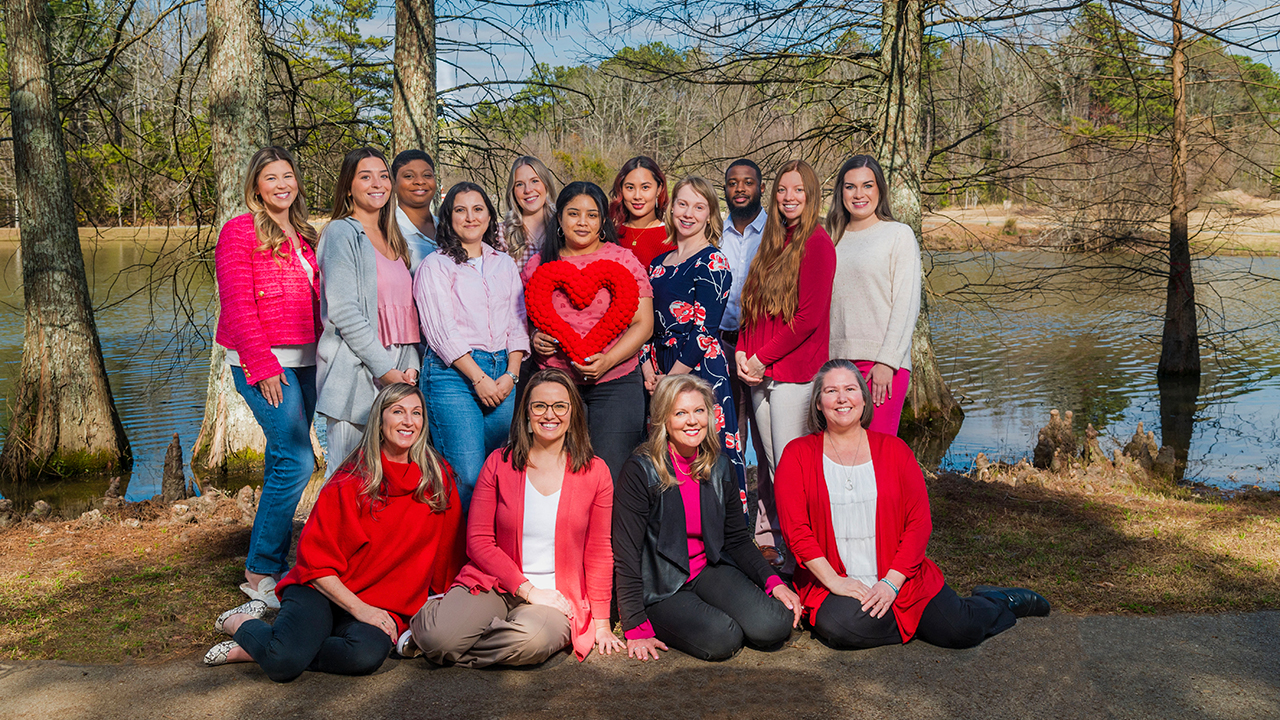
Adler-Baeder with the 2024 AHMREI lab researchers.
The work resulted in more than 90 published research articles on the implementation methods and evidence of effectiveness and impact. A 2022 study on the efficacy of these programs in the Family Process journal used random control assignment, the gold standard in program evaluation, and revealed that participants in both curriculum groups were positively impacted over a one-year period, with “significant gains in couple relationship skills, couple quality, mental health, sleep quality and family harmony over time compared to the control group.”
“Our efficacy trial is one of the few published studies of couples education that uses a community-based approach and features a large sample of couples, diverse in age, race, socio-economic status and relationship status. The positive evidence of impact is very motivating for continuing our work," Adler-Baeder said.
The free programming for AHMREI is available online through virtual classes and other resources, and in-person at the Auburn Research Park and at partnering community centers across the state. To date, the program has impacted more than 71,000 individuals in Alabama. Of those, 98% of couples and 97% of adult individuals reported that the programs helped them “a lot” or “some.”
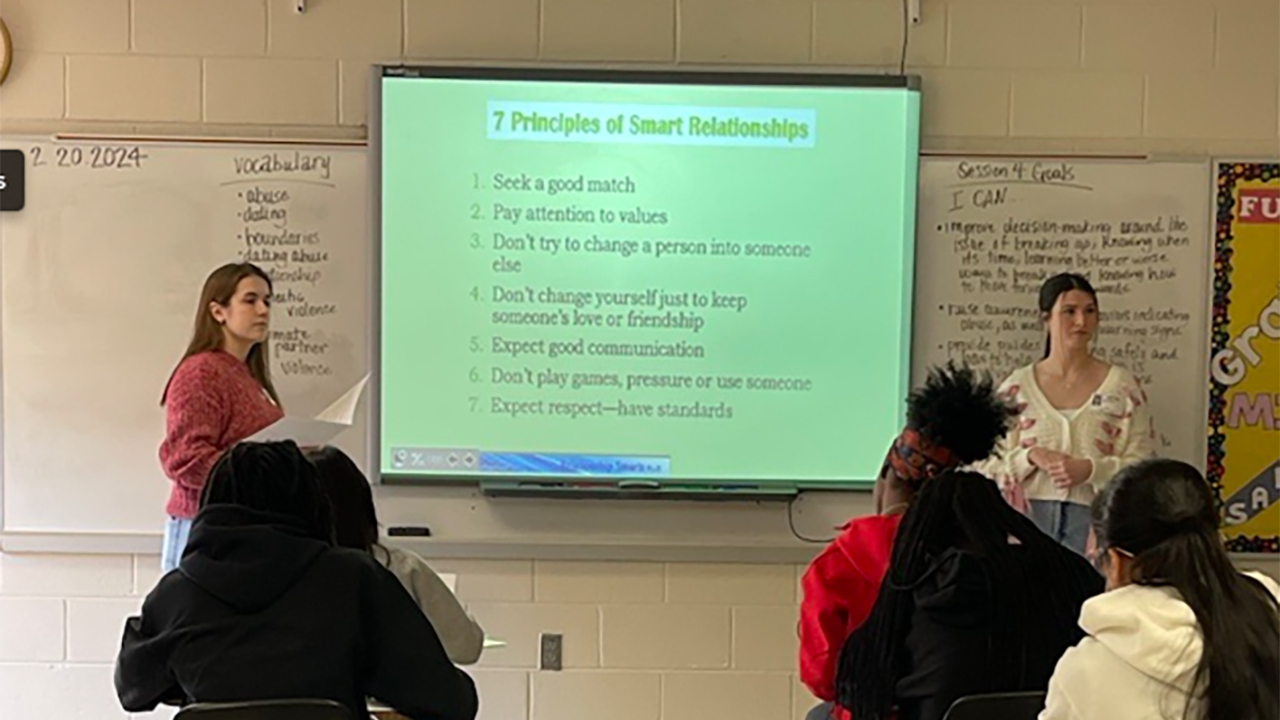
Auburn student teachers facilitate a high school classroom session with the Alabama Youth Relationship Education project.
Start them young
As part of the AHMREI, Adler-Baeder works in Alabama communities and high schools via the Alabama Youth Relationship Education project (AYRE). Focused on serving youth in high schools, the program is designed to help teens recognize what a healthy relationship looks and sounds like via a curriculum administered through health and family and consumer science science classes called Relationship Smarts Plus.
“For some of our high schoolers, the program is the first time they hear what it sounds like to respond in a more positive way during conflict, to display caring, compassionate feelings to another person and to learn real interactive communication skills,” Adler-Baeder said. “There are some big ‘aha’ moments in the classroom. For example, we teach how to break up with someone in a compassionate way. That’s a relationship skill.”
In addition to community educators who deliver programs through partner agency sites around the state, each semester, approximately 15 undergraduate students are trained to be facilitators (more than 350 to date) and paired with doctoral students and AHMREI staff supervisors. They deliver the curriculum and teach the AYRE classes as a service-learning project and learn to collect data that is then analyzed to refine the curriculum and how it is administered, therefore increasing its effectiveness on Alabama youth.
“They can see and feel the impact they’re having in the schools,” Adler-Baeder said. “They get programmatic experience and learn applied research and evaluation methods first-hand.”
To date, approximately 45,000 teens in Alabama have taken the course. In addition to reporting positive gains in social competence and skills, 13% reported leaving a relationship that was emotionally unhealthy or abusive and 9% reported leaving a relationship that was physically unhealthy or abusive.
Nearly $50 million in competitive external funding has been secured, mostly from federal grants to support the AHMREI work and research. More than $15 million of this has been provided in economic support directly to the communities that fund staff and facilitators at local partner agencies and family service centers. Thus far, more than 250 part- and full-time jobs have been created at Auburn University and around the state, many in high-need communities. Graduate research assistantships have been provided to more than 80 AU graduate students.
“I believe it’s one of the largest continuously funded research programs we’ve had at Auburn,” said Adler-Baeder. “We are proud of the engaged partnerships in small communities around the state and our ability to offer support for employment and the availability of evidence-based relationship classes for a large number of youth and couples each year. Promoting access to resources is central to Auburn’s institutional mission.”
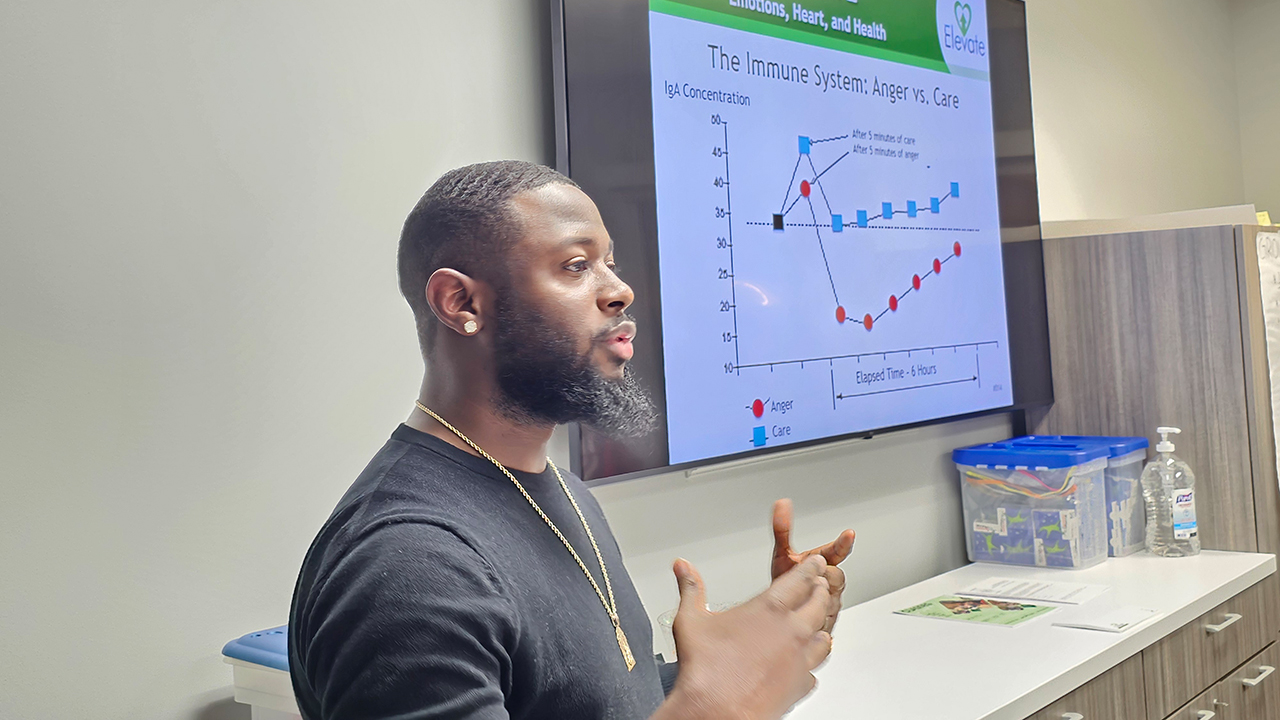
Doctoral student Raequon Pinkney leads a class for AHMREI.
Going national
The next phase of Adler-Baeder’s work involves more implementation science questions on differing modes of delivery, since different models may serve different types of participants better. She is currently comparing the effectiveness of an intensive six-week course to a monthly course. The study has recruited 1,400 couples and will divulge which method works best for what kind of couple, breaking the results down by several diversity factors. In the youth project, they are comparing the effectiveness of the program based on whether the high school students get more out of the program learning from the undergraduate “near peer” teachers or from community agency educators who are typically older and more experienced facilitators.
In addition, Adler-Baeder will continue to scale up the model of AHMREI and AYRE by enhancing collaboration opportunities with universities around the country.
“What we’re hoping to do next is continue and expand. We have solid, evidence-based programming and delivery models,” she said. “I want to infuse these programs into other entities. We’ve shared our college-based service learning model through multi-state collaborations. It’s a win-win for the undergraduate students and the high schools in those communities. I hope to do more training and share how our model can be scaled up in more states. We are also working on better addressing the needs of the diverse group of couples attending our classes. We are very inclusive in our approach, and we will be testing whether the content of the programs addresses specialized needs and whether couples gain more by being with other similar couples or a more diverse group of couples.”
What continues to drive Adler-Baeder is the belief that healthy relationships are the foundation for healthy communities.
“The combination of structural supports and individual supports at the family level, such as solid evidence-based education, is key to better family and community functioning,” she said. “Healthy relationships are central to the overall health and well-being of communities and as part of an engaged institution, I have been privileged to have the opportunity to work alongside so many compassionate colleagues, students and community partners in this realm.”




